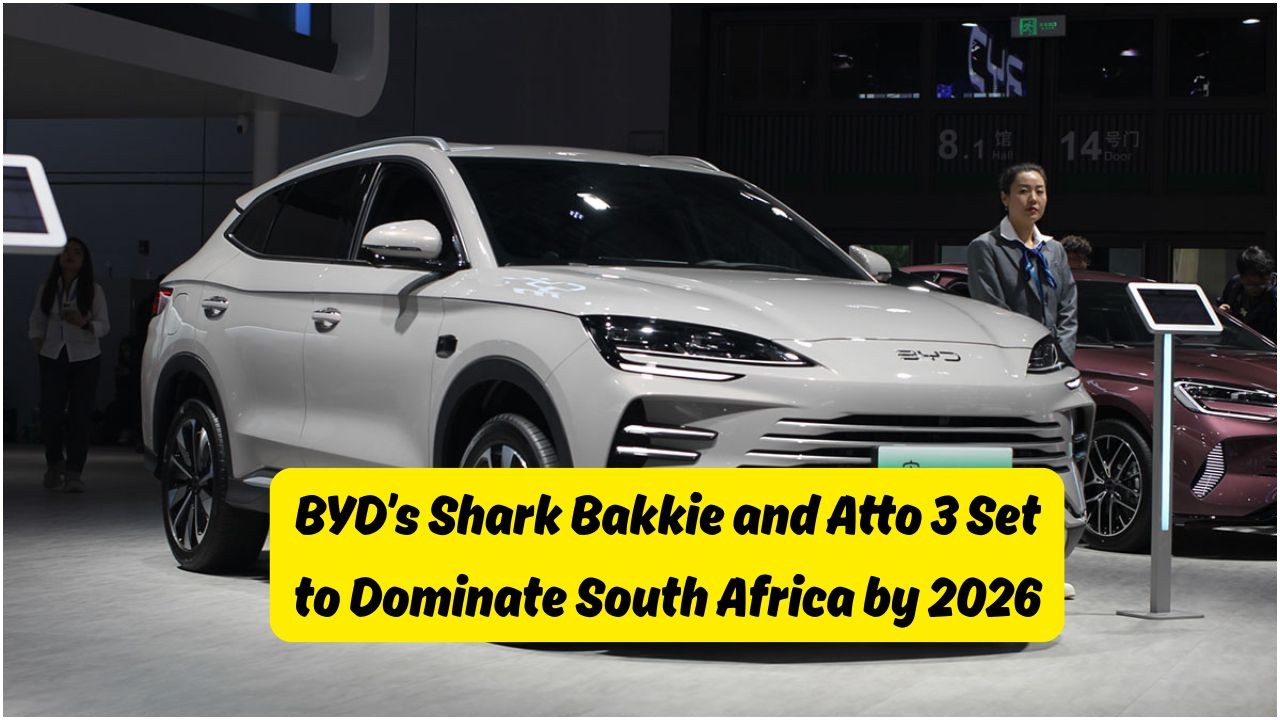BYD Aims to Surpass Toyota in South Africa’s EV Market: As the South African electric vehicle (EV) market continues to expand, BYD has set its sights on overtaking Toyota by 2026. With the growing demand for sustainable transportation, BYD’s ambitious plan involves significant investments in infrastructure and technology to capture a larger share of the market. The company’s strategic approach includes enhancing production capabilities, expanding its lineup of EV models, and leveraging local partnerships to strengthen its presence. As South Africa shifts towards greener solutions, BYD’s bold expansion plan is poised to make a considerable impact.
BYD’s Strategy to Lead the EV Market by 2026
BYD’s strategy to become a leader in South Africa’s EV market by 2026 revolves around a multi-faceted approach. The company is focusing on increasing its production capacity to meet the rising demand for electric vehicles. By establishing new manufacturing facilities and upgrading existing ones, BYD aims to boost its output significantly. Additionally, the company is investing in research and development to enhance the performance and efficiency of its EV models, ensuring they cater to the diverse needs of South African consumers.
- Expansion of manufacturing facilities
- Investment in research and development
- Partnerships with local suppliers
- Focus on consumer needs and preferences
Innovative Technologies Driving BYD’s Expansion
BYD’s commitment to innovation is a key driver of its expansion plan. The company is leveraging cutting-edge technologies to develop EVs that are not only environmentally friendly but also offer enhanced performance and safety features. BYD’s focus on battery technology is particularly noteworthy, as it aims to produce batteries that offer longer range and faster charging times, addressing two of the most common concerns among potential EV buyers. Moreover, BYD is integrating smart connectivity features into its vehicles, providing users with a seamless driving experience.
- Advanced battery technology
- Smart connectivity features
- Enhanced safety systems
- User-friendly interfaces
Challenges and Opportunities in South Africa’s EV Market
While BYD’s expansion plan presents numerous opportunities, it also involves navigating a series of challenges inherent in South Africa’s EV market. One of the primary challenges is the limited charging infrastructure, which can deter potential buyers. Additionally, the high cost of EVs compared to traditional vehicles remains a significant barrier. However, BYD sees these challenges as opportunities to innovate and lead the market. By collaborating with governmental and private entities, BYD aims to enhance charging infrastructure and explore cost-reduction strategies to make EVs more accessible.
 Thousands Stranded by August NSFAS Blockages: Discover the Viral R5,200 WhatsApp Hack to Solve It
Thousands Stranded by August NSFAS Blockages: Discover the Viral R5,200 WhatsApp Hack to Solve It
- Limited charging infrastructure
- High initial cost of EVs
- Government policies and incentives
- Potential for public-private partnerships
- Opportunities for innovation
- Focus on sustainability
- Consumer education and awareness
Comparative Analysis: BYD and Toyota in South Africa
| Company | Market Share (2023) | Projected Share (2026) | Key Strengths | Challenges |
|---|---|---|---|---|
| BYD | 15% | 30% | Innovation, battery tech | Infrastructure, cost |
| Toyota | 35% | 25% | Brand loyalty, network | Adapting to EVs |
Local Partnerships Boosting BYD’s Market Position
BYD’s collaboration with local partners is pivotal to its strategy in South Africa. By aligning with South African companies and suppliers, BYD is not only strengthening its supply chain but also fostering innovation through shared expertise. These partnerships enable BYD to tailor its offerings to better suit the local market while promoting sustainable practices. Furthermore, local collaborations help BYD navigate regulatory landscapes and leverage government incentives aimed at promoting electric mobility.
- Strengthened supply chain
- Shared expertise and innovation
- Tailored offerings for local market
- Enhanced regulatory compliance
- Leveraging government incentives
- Promotion of sustainability
Investment Commitments for a Sustainable Future
| Year | Investment (ZAR billion) | Focus Area | Impact |
|---|---|---|---|
| 2023 | 5 | Manufacturing | Increased capacity |
| 2024 | 3 | R&D | Enhanced technology |
| 2025 | 4 | Infrastructure | Expanded charging network |
| 2026 | 2 | Partnerships | Market penetration |
Consumer Response to BYD’s EV Offerings
The response from South African consumers to BYD’s EV range has been overwhelmingly positive. The appeal of environmentally friendly vehicles coupled with advanced features has resonated well with the market. Consumers appreciate the blend of innovation and affordability that BYD offers, making EVs a viable option for many. As awareness and acceptance of electric vehicles grow, BYD’s focus on customer satisfaction and feedback continues to shape its product development strategy.
- Positive market reception
- Blend of innovation and affordability
- Growing awareness and acceptance
- Customer-focused development strategy
Future Projections for BYD in the South African EV Market
- Significant market share growth
- Expansion of product lineup
- Continued innovation in technology
- Strengthening of local partnerships
FAQ Section
What is BYD’s target year to surpass Toyota in the South African EV market?
BYD aims to surpass Toyota by 2026.
How is BYD planning to enhance its production capabilities?
BYD plans to enhance production by expanding manufacturing facilities and investing in research and development.
What challenges does BYD face in South Africa?
Challenges include limited charging infrastructure and the high initial cost of EVs.
How does BYD plan to address the issue of limited charging infrastructure?
BYD plans to collaborate with governmental and private entities to expand the charging network.
What role do local partnerships play in BYD’s strategy?
Local partnerships help strengthen the supply chain, foster innovation, and navigate regulatory landscapes.










